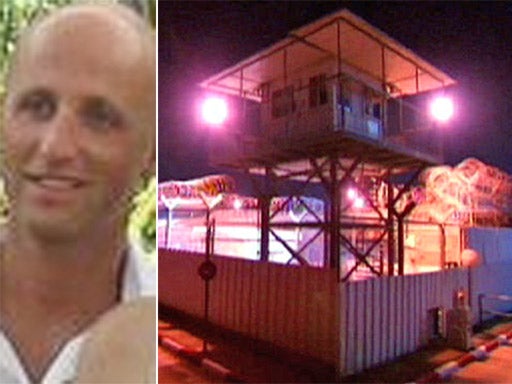Revealed: The identity of Israel's Prisoner X
The Australian Mossad agent's name was so secret that even his jailers didn't know it. Now the Israeli government is trying to cover up his true identity

So secret was his identity – and indeed his crime – that even his jailors didn't know his name. And, when details of Israel's "Prisoner X" finally began to emerge, the Prime Minister's office rushed to hold a meeting with newspaper editors to ensure that details of the story did not get out.
Ever since the death of the top secret prisoner three years ago, there has been intense debate about his identity and what heinous crime he was jailed for, with few details ever being offered by the Israeli justice system.
Only now is the murky story of Prisoner X finally beginning to leak out, at least in part. According to an Australian television documentary, broadcast earlier this week, the man in question was an Australian Mossad agent named Ben Zygier, who also used the aliases Ben Alon and Ben Allen after moving to Israel.
The documentary, produced by ABC's Foreign Correspondent programme, says Zygier, 34, was married to an Israeli woman and had two children. It alleges he died after hanging himself in solitary confinement at the high-security Ayalon Prison, which is used to house Israel's worst offenders, including Yigal Amir, the right-wing fanatic who killed Israeli Prime Minister Yitzhak Rabin in 1995.
But even if ABC has pinpointed the identity of Zygier, what he is supposed to have done remains a mystery. The left-leaning Haaretz newspaper, which wrote about the death of Prisoner X in 2010, reported that the office of Prime Minister Benjamin Netanyahu called a gathering of top Israeli journalists in a bid to prevent details of the case emerging. A spokesman for Mr Netanyahu told The Independent Zygier's identity was not confirmed.
At the time of Zygier's suicide, there was rampant speculation over Prisoner X's identity, with a number of media outlets suggesting the man was probably of Iranian descent, and possibly a member of that country's elite Revolutionary Guard.
However, the ABC investigation suggests there is at least evidence that a body repatriated to Australia in 2010 was that of Zygier – the body was transported a week after Prisoner X's death and, ABC suggests, it came under the name of Ben Allen, the same name used on Zygier's second passport.
It appears that the authorities in Canberra are as much in the dark as everyone else. Speaking about the ABC documentary, the country's Foreign Minister, Bob Carr, said: "Those allegations certainly do trouble me. It's never been raised with me. I'm not reluctant to seek an explanation from the Israeli government about what happened to Mr Allen and about what their view of it is.
"The difficulty is I'm advised we've had no contact with his family [and] there's been no request for consular assistance during the period it's alleged he was in prison.
"Even if Prisoner X has now been identified, his crime, however, remains a mystery although it has been widely speculated that it would have involved treachery to warrant such extreme measures," Mr Carr said.
The meeting convened by Mr Netanyahu's office was a semi-official gathering of principle journalists, editors and media proprietors. Like the D-Notice system in the UK, the government can ask the media to withhold certain facts which, if made public, could constitute a risk to national security.
Several opposition members of the Israeli parliament's human rights organisations said the truth will eventually be disclosed. The leader of the social democratic Meretz party, Zahava Gal-On, told Haaretz that "the phenomenon of journalists volunteering to censor information at the request of the authorities is patently undemocratic. I had hoped that this would have ended decades ago. In a democracy, censorship is justified only out of security considerations, subject to the High Court, which ensures that it is justified and that there truly is immediate certainty of harming [national] security."
Subscribe to Independent Premium to bookmark this article
Want to bookmark your favourite articles and stories to read or reference later? Start your Independent Premium subscription today.

Join our commenting forum
Join thought-provoking conversations, follow other Independent readers and see their replies